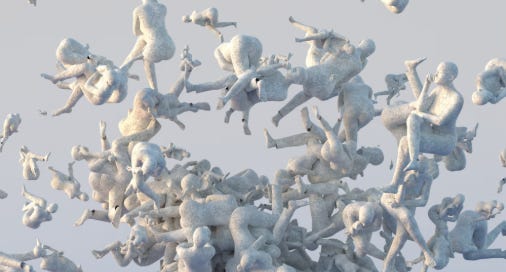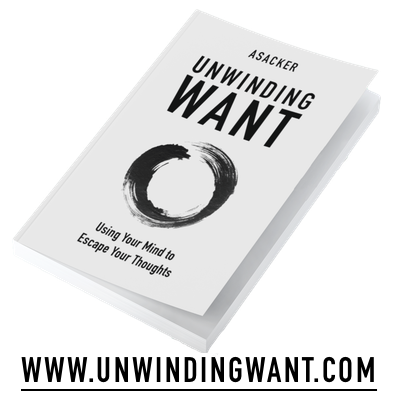“I say unto you: one must still have chaos in oneself to be able to give birth to a dancing star.” ~ Friedrich Nietzsche, Thus Spoke Zarathustra
Picture a young person frantically asking the big questions—what should I believe, who should I become, how does society really work, what does it mean to be good and successful? Now imagine that person never getting coherent answers. That was me. While other kids seemed to receive neat, consistent explanations about how the world worked, I was handed fragments and contradictions, left to piece together my own understanding—like being dropped into a maze without a map.
This might sound like a recipe for confusion and anxiety. But something unexpected happened in that space of not-knowing: I discovered a profound kind of freedom within the maze.
When I was growing up, my mind would search desperately for answers, taking in information from adults and authority figures like some primitive search engine querying a database. But the information it found was contradictory, incoherent, confusing. My mind would go looking for coherent guidance about God, about right and wrong, about how to navigate life, and it would return empty-handed, essentially telling me: “I don’t know—figure it out yourself.”
This wasn’t the packaged worldview that many children receive. Instead, I was released into what felt like beautiful chaos—that wildness of being told to be home when the streetlights came on and having to find my way through the unpredictability in between. What I didn’t realize at the time was that this chaos was actually preventing what psychologists call “identity foreclosure”—the premature commitment to a single identity or way of being without exploring alternatives. While other children might settle into roles and worldviews handed down by family or culture, my contradictory environment kept me from closing the door on any single way of understanding and experiencing life.
Here’s what I discovered in that wide-open, apparent disorder: when you can’t rely on your thinking mind to give you clear-cut answers about how the world should work, you begin to see something remarkable. You realize that how the world operates—the inconsistent reactions you encounter, the unpredictable dramas unfolding around you—has surprisingly little to do with you. After all, if the world’s responses around you were truly about you, they’d be consistent and logical. But they’re not. You’re simply stepping into this swirling complexity, responding as best you can—like dancing with a partner whose steps you can’t predict, but whose rhythm you can feel.
What made this realization truly liberating was a deeper discovery: as I watched the adults, authorities, and institutions I expected to have definitive answers, I could see they were all just figuring it out as they went along. Everyone was improvising. I witnessed the confident facades crack, the authoritative pronouncements shift and contradict themselves, the seemingly clear social rules bend and change—underneath it all was the same beautiful uncertainty I was experiencing.
Once you see this, everything changes. The anxious uncertainty that plagues so many people—that desperate feeling of “I don’t know and I should!”—simply dissolves. You can’t fail at a test that doesn’t have answers. You can’t be wrong about a game where everyone is making up the rules as they play. This distinction is crucial: there’s anxious uncertainty and what you might call liberated uncertainty.
The anxious uncertainty that plagues so many people is based on the false premise that certainty was available and they are somehow failing to access it. Psychologists call this anxious state “tunneling”—when the desperate search for certainty actually narrows your perception of what’s possible. The scarcity of clear answers creates a kind of mental bandwidth shortage that pulls your attention away from creative thinking. Ironically, the very anxiety about not having answers shrinks your sense of options. But once you see that everyone is improvising, that pressure to “get it right” simply evaporates, and the tunnel opens back up into spaciousness.
This realization dissolves what philosopher Iris Murdoch called “selfing”—that exhausting habit of making everything about you. When you understand that there’s no universal playbook for life that you’re somehow failing to access, the constant self-evaluation finally quiets down. You stop asking “Am I doing this right?” because you realize it’s often an irrelevant question. You stop measuring yourself against others who seem to “have it figured out” because you can see they’re winging it too—whether they realize it or not.
When you can’t get reliable answers from the external world, when you see that even the supposed experts are figuring things out as they go, you stop trying to force the world into the shape you think it should take. You stop positioning yourself at the center of the universe as the ultimate judge of how things ought to be. Instead, you begin to see the world as it actually is: a kaleidoscopic dance of forces, people, circumstances, and changes that existed long before you arrived and will continue long after you leave. You’re not the choreographer of this dance—you’re a participant, responding and adapting, doing your best to move gracefully with whatever emerges.
This isn’t the relief that comes from finally solving a puzzle you’d been struggling with. For me, there was no previous state of false certainty to recover from. This was simply how reality presented itself: not as a problem to be solved or controlled, but as an ongoing improvisation to be engaged with.
The chaos becomes enlightening because it strips away the exhausting illusion that you’re supposed to have everything figured out, that there’s one correct way to live, that the world should bend to your expectations. When that illusion dissolves, what remains is something much more alive—the simple awareness that you’re participating in something vast and mysterious, responding with whatever wisdom and compassion you can summon in each moment.
This is why spiritual teacher Anthony De Mello observed that we’re never so self-centered as when we’re suffering, never so free from self-obsession as when we’re genuinely happy. Happiness naturally releases us from the prison of excessive self-concern. But seeing through the illusion of certainty can accomplish the same thing—it reveals that the prison door was never actually locked, that the world was never really about us in the first place, and that this recognition is not a devastating loss but a profound liberation.
When you stop making everything about yourself—when you shift from trying to perform the “correct” life to simply participating fully in the one you have—you can finally see the world clearly. And in that clarity, there’s a quiet kind of enlightenment—not the dramatic awakening of spiritual movies, but the gentle recognition that you’ve been part of this beautiful improvisation all along, and the dance is magnificent precisely because nobody is in control.
Note: If you’re interested in going a bit deeper on my philosophy, you can download a PDF at the following link: Embracing Improvisational Naturalism.
Stay passionate!






"You can’t fail at a test that doesn’t have answers." Brilliant!
“to see clearly is to stop pretending”—that line struck a quiet chord. Not just because it’s true, but because it names what so few dare to admit: that most of our “knowing” is really just scaffolding to hold the self together.
Your reflection reminds me of what we see in the field every day. People aren’t resisting change because they don’t care. They’re protecting the meaning that’s held their identity in place. Even when that meaning quietly costs them their joy.
What you’ve written here isn’t just beautiful—it’s brave. Because unknowing doesn’t feel safe at first. But it’s the only place where something real can begin.
Thank you for helping us all remember that.